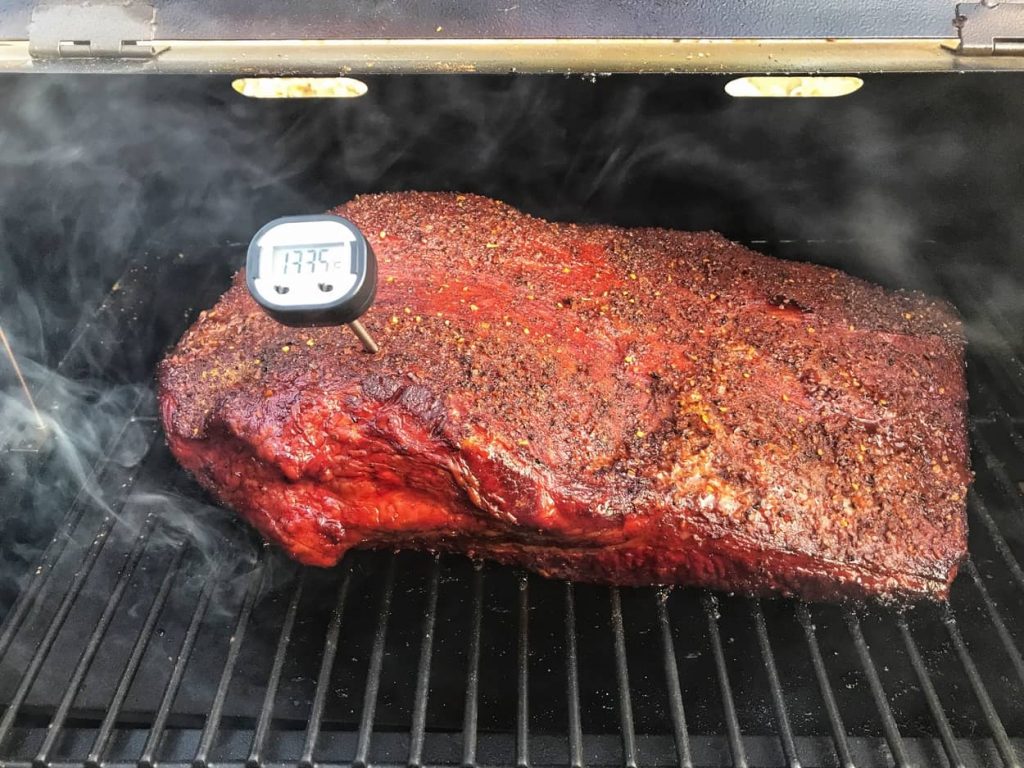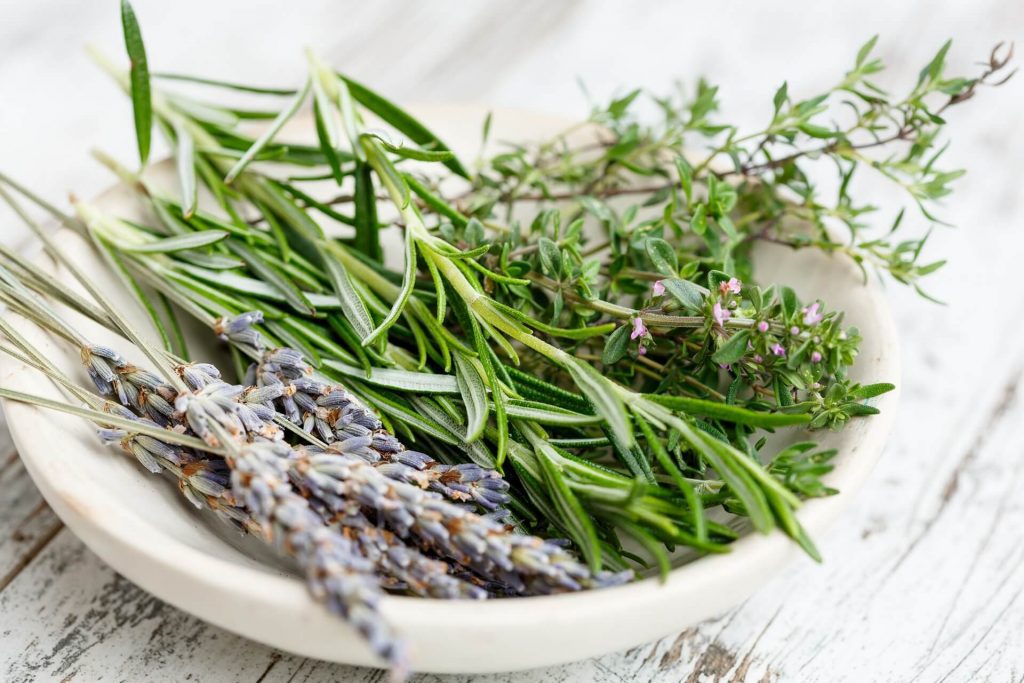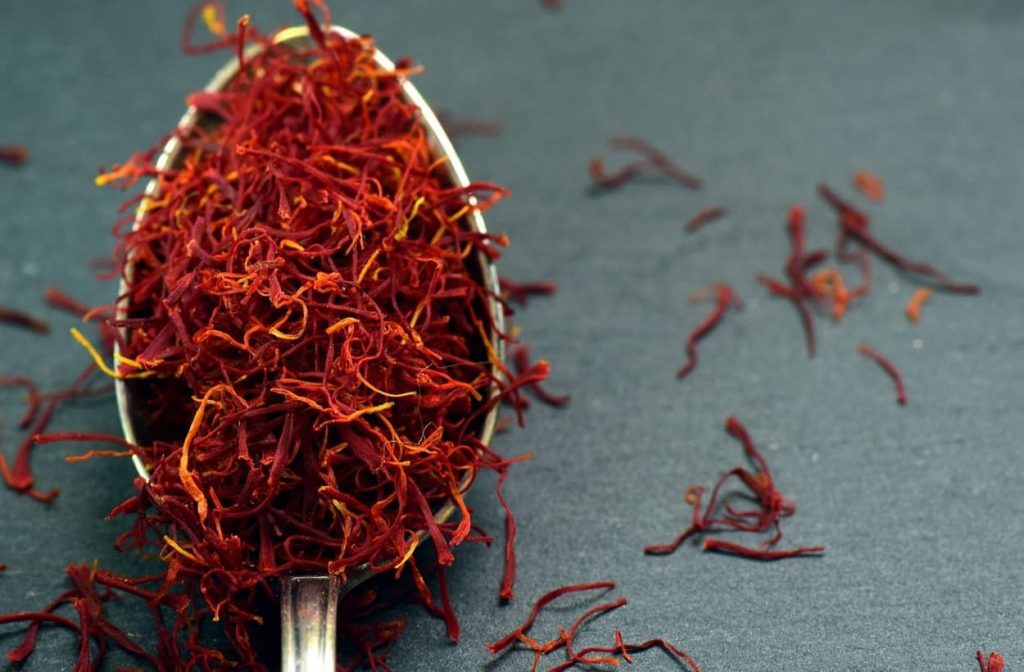When it comes to cooking meat, brining is super important to keep the moisture in the meat. In addition, it does have a say on taste and tenderness as well. So. Should I brine a brisket for smoking? It’s yes for now, but there are more to be discussed, and you have landed on the perfect web page to read out every possible aspect of BBQ brisket brine. Let’s get started.
[wpsm_toplist]
What Is The Brisket?
First things first, before I let you know about brining brisket for smoking, let’s define it. Actually, it is a cut of cow that is from its lower breast; else, you can say it’s the pectoral muscle. Since the muscle is in use more often than not, it is pretty much tough and enriched with connective tissue.
Moreover, brisket can be a considerable size of a cut, and usually, it weighs more than 10 pounds (up to 14 pounds).
Have you heard about the pork brisket? I recommend to read about pork and beef brisket if you are a newbie.
Is Brisket Jewish?
I personally know that this is an awkward question to ask and answer as well. While providing the answer to the question as yes, give me a minute to elaborate on why it is considered Jewish. There are two main factors that contribute to this,
- The law of Jewish when it comes to preparing meat is not a walk in the park, and it is found to be a daunting task to butcher the back quarter of the cow without harming the cuts. This led the Jewish to stick with the cuts that come from the front quarter of the cow.
- Further, it was one of the cheapest cuts available in the market.
What Is Brine?
It is a highly concentrated water solution of ordinary salt; that is the common understanding people have about brine. In fact, natural brining happens in the underground in places such as saltwater lakes or seas. These brines are the main source to produce ordinary and other forms of salts.
In addition, you could put brines in work to preserve meat packages as well as pickling. Does soaking a brisket in a brine do any good? This is the topic I anticipate talking with rather than the chemical side of things.
Also, I have included a section on how do you brine a brisket, which you can come across later in the article.
What Does Brining Do To Meat?
Brining is nothing new to the world. It was a preservation method used by the people who lived prior to the invention of refrigerators. However, coming back to the present, there are two valid reasons why you want to brine meat. Brining is helpful to get flavorful meat, and it adds amazing texture as well.
Why Brine Before Smoking?
So, why do you want to brine brisket before smoking? There are several benefits included in brining brisket overnight. Here are some of them for your observation.
Advantages of Brining
- Smoking is a process that dries the meat to a great extent. In order to receive juicy dishes brining a brisket before smoking is super important.
- Using brine for a brisket is also a simple method in terms of seasoning. However, you have to be very cautious when seasoning a brisket that is already brined.
- It works magnificently with meat that has less amount of fat. Chicken and pork are two of the meat sorts that can receive benefits of a proper wet brining.
Wet Brine vs Dry Brine Brisket
As you now know whether to brine or not to brine brisket, let’s see the difference between wet and dry brining methods and how to use them in a brine brisket recipe.
Wet Brine
A wet brine is usually a combination of 1 gallon of water and one cup of kosher salt. It is the ideal solution for soaking meat, poultry, fish and etc. Personally, I like to add less-essential ingredients into this solution for an added flavor.
In addition, I would say wet brine is best suited for white meats than red meat sorts. If you happen to soak red meat in liquids, you will end up with less flavorful outputs.
Dry Brine
In this method, there will be no liquids or soaking associated with the process. Instead, you will be applying salt to the surface of the meat. Also, dry brining won’t add additional moisture to the meat, but it will help you retain the existing moisture.
In order to dry brine, please use 3/4tsp of kosher salt for one pound of meat. Opposite to wet brine, this method is perfect for red meat as it tends to protect the natural flavor of the meat much prominently.
So, should I brine a brisket before smoking? Of course, you should. What is the best brine for smoked brisket? I would say it is dry brine you should go with.
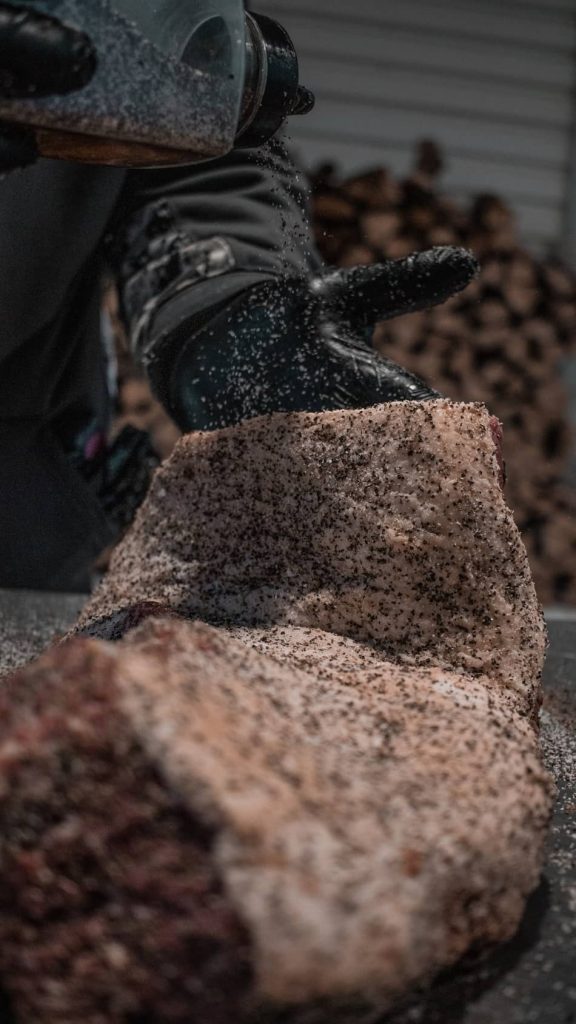
Brisket Brine Ingredients
I have seen people using various ingredients to make brines. After you go through the ingredients that I use, you would realize that it is more of a personal choice in terms of what you use to produce brisket brine and rub on meat.
Here is one of my favorite brine recipe ingredients that I use for smoking.
- 7-8 cups of warm water
- ½ cup of salt
- ½ cup of sugar (brown)
- One-inch cinnamon stick
- 2 star anise
- 2 teaspoons of fennel seeds
Guys, in addition to the basic ingredients, you can play with other spices as you like. For example rosemary and paprika. But, I want you to keep the brine as simple as possible to get the best results.
What Salt to Brine Brisket?
According to my experience, I can suggest to you various types of salts for brining, but using table salt is not an option. Diamond crystal, kosher, Himalayan Pink, and light grey Celtic are some of the great salt variants I strongly advise you to use in a brine.
If you have the luxury of opting for kosher salt, it would be the best choice out of the lot, as kosher salt is best known for its purity.
What I want you to realize here is that not all salt sorts are the same. Even though they are pretty much similar to the eye, the taste differs from one to another.
Furthermore, salt brisket overnight to allow the brine to absorb the ingredients to the fullest into meat; quick brine brisket might not provide you with the results you anticipate.
How to Brine a Brisket for Smoking?
Since I have put more emphasis on dry brining, I’ll explain how you dry brine a brisket first. I know most of you are dealing with red meat.
Dry Brining
In order to dry brine a brisket, rub kosher salt on the surface of the meat and leave the seasoned meat in the fridge. As I explained earlier, it would be best if you keep it in the fridge overnight and cook the next morning.
If you are in a hurry, make sure to allow at least two to three hours before you cook. Simply put, the more time you allow salt on the meat, the better it would get in terms of flavor and texture.
If you want an enhanced flavor, you can use a rub as well. However, this has to be done with care as most rubs themselves contain a significant amount of salt. If not handled properly, it will overpower the dish.
I think you can remember that the primary objective of brining the meat is to retain the moisture of the meat.
Another vital element is that you should not wet brine meat if your ambition is not to make corned brisket. Wet brine often leads to losing the flavor of the meat you cook.
As an example, if you use wet brine on beef, you are encouraging meat flavor to dilute in the solution. Again, it works best with poultry, not on red meats such as beef.
Wet Brining
If you still want to learn about wet brining, here we go. The first step is to boil the water. You can make calculations that I previously described to determine the amount of water you need; it’s the same with salt.
Once the water starts to dance, add the salt. You can add the spices of your choice as well; if you are unsure about the spices, you can always go with the spices that I revealed. Then, stir the mix to dissolve the salt into the water. After you give all the ingredients a proper mix, let the mixture cool slightly. Then, transfer the brine into the fridge.
Once the solution is adequately chilled, it’s time to add the brisket to it. Make sure you submerge the entire brisket in the liquid; you can put something heavy on the meat to help the cause. Now let it sit in the fridge for at least a couple of hours.
Finally, take the mixture containing the brisket out from the fridge. If you have used the right amount of salt, you will notice no salt on the surface of the meat. Given you observe salt, you should rinse the brisket before you cook. Then, use paper towels to get rid of excessive moisture.
Now, it’s time to continue with your recipe. If your recipe requires more salt, be mindful that you already have salt in the brisket and use it in small amounts.
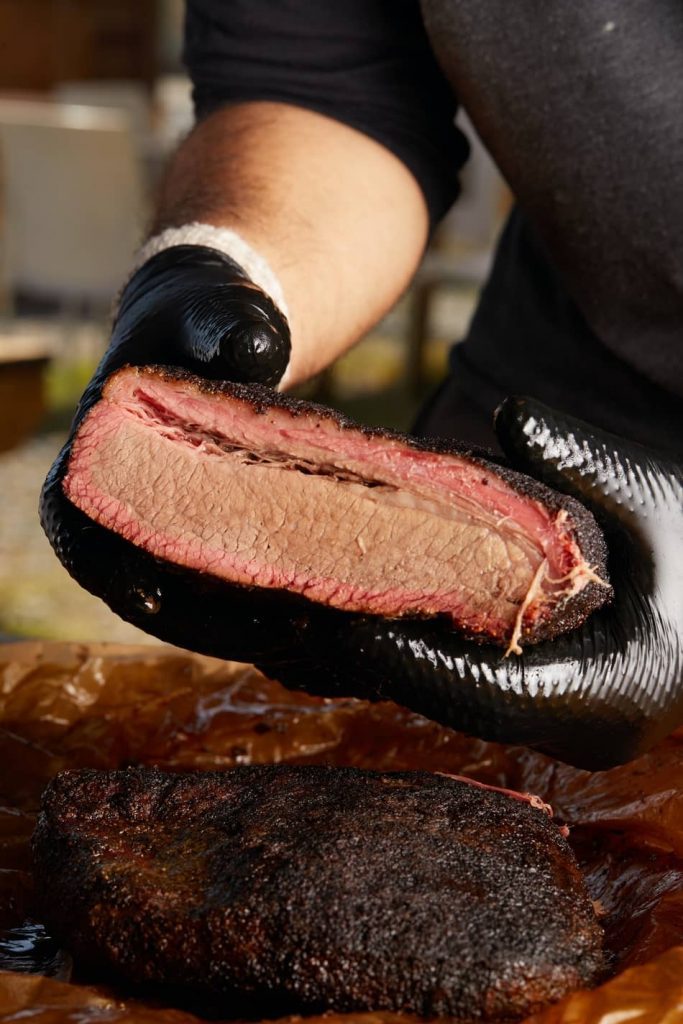
How Long To Brine Brisket?
If you have read the article from the start up until now, you would know the exact answer to this question. I would recommend you a brining time of at least 12 hours to get top-notch results. In fact, the taste of the brisket gets more pronounced if you smoke the meat after 24 hours.
If the time is not on your side, eye for a brining time of a minimum of two hours. That is the norm; however, I can’t approve such a short time to get the expected results. It won’t work like that, fellas.
That said, there is another side to this matter in terms of time. That is the size of the meat you are brining. If you are working with a big size of meat, obviously, salt requires more time to work its way into the middle part of the meat.
In addition, to enhance the flavor of your dish, do not expose the brined meat to room temperature before you start smoking. The colder briskets tend to provide high-quality results as it makes it easier for the meat to attract more smoke from your smoker.
How to Get Rid Of the Brine in Brisket?
Considering the wet brining process, you are going to end up with brine in the brisket container after you keep the mixture in the fridge. This won’t be an issue if you have dry brined the brisket as it hardly involves any liquid. For those who love to wet brine, it is mandatory to remove the excessive brine solution on the meat before you place it in the smoker.
In order to get rid of brine, you can use dry paper towels, as I mentioned. Most people tend to rinse the meat a wee bit, but I see that as an unnecessary step as far as I see no salt on the meat. If you have followed my instructions carefully, there will be no need for you to rinse as well! Rinsing the meat comes with a substantial drawback.
When you put water on brined meat needlessly, it will wash off the valuable solution on the meat. Never do this, particularly if you have not managed a significant brining time.
Conclusion
So, guys, before I say adios, let me recap everything in a couple of sentences. Brining is important to enhance the taste of meat, and there are two major brining methods; wet and dry. If you are trying to smoke red meat, it would be best if you stick with dry brining and wet brining suits poultry in particular. So, should you brine a brisket? Let me see your answers in the comment section. Have a great day!

